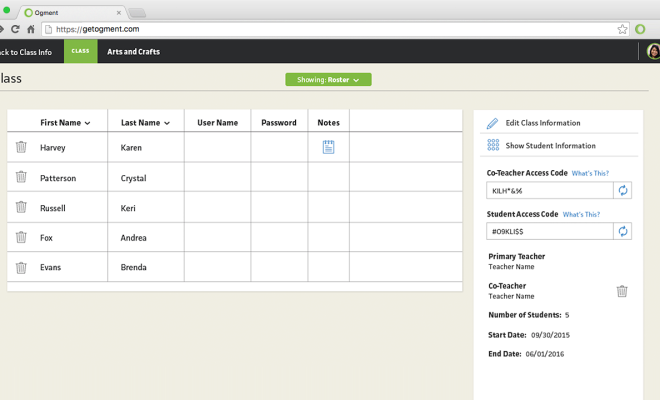Why teachers are unable to stop bias-based bullying

SeriaShia J. Chatters, Pennsylvania State University
State and local lawmakers have put policies in place to address and prevent bullying. Many schools too have implemented interventions to improve school climate to reduce bullying behaviors.
Despite these efforts, in my research and experiences in schools as a counselor educator and school counselor, I have found bullying based on bias continues to be an issue in school settings.
“Bias-based” or “identity-based” bullying, defined as students being bullied specifically based on their race, nationality, gender, sexual orientation, disability, religion, socioeconomic status or weight, is far more difficult to recognize or address when compared to traditional forms of bullying.
Teachers too may fail to notice and address such behaviors and, at times, may even be involved in them.
Response to bullying
Bias-based bullying incidents involve explicit and implicit forms of racism, sexism and other forms of prejudice or discrimination. They are not only harmful emotionally, socially and psychologically to students, but are also a violation of a student’s civil rights.
The U.S. Department of Education’s Office of Civil Rights urges schools to be vigilant in the identification and prevention of bias-based bullying and provides guidance on specific laws that prohibit bias based harassment such as Title IX, a federal law, that prohibits discrimination on the basis of gender or sexual orientation, Section 504 or Title II, which protects individuals with disabilities, and Title IV, which protects individuals from harassment based on religion, ethnicity or shared ancestry.

Bias-based bullying behaviors can go unnoticed. Twentyfour Students, CC BY-SA
Despite this protection, however, bias-based bullying behaviors persist and can go unnoticed, or even be endorsed, by teachers in the field.
For example, a recent study investigated physical education teachers failing to respond to bullying behaviors against students being targeted due to their weight. Studies have also highlighted teachers failing to respond to students being bullied due to their sexual orientation.
Failure to recognize bias-based bullying behaviors can lead to tragic consequences.
Ryan Halligan, a 13-year-old student who committed suicide in October 7, 2003, was targeted primarily with homophobic slurs. A more recent case was that of Kennedy LeRoy, a teen who committed suicide in June 2015 after he was bullied partly due to having Asperger’s syndrome.
Bullying by teachers
Worse still, some students report being victimized not just by their peers but by their teachers as well.
In a study titled The Youth Voice Project published by my colleagues, Charisse Nixon and Stan Davis, students in special education testified that their teachers were more abusive toward them than toward their peers in general ed.
Although this information may seem surprising, teacher involvement in bullying students extends beyond special education settings to general and alternative education settings.
A 2011 study, for example, by researchers Christine Zerillo and Karen F. Osterman indicates that, although teachers were aware of colleagues who bully students, they felt more accountable to report peer bullying.
When teachers think they are outsiders
Although most schools are preparing educators and staff to recognize and respond to bullying, behaviors that are based on bias are often overlooked.
The results of a study I conducted indicated that educators may lack the knowledge of and skills to respond to bias-based bullying.
I investigated perceptions of undergraduate students in teacher education programs. I asked participants about their perceptions of their role when faced with a situation involving bias based bullying.

Most people consider themselves outsiders and do not respond to bullying. Denise Krebs
Approximately 50 percent of participants considered themselves to be outsiders or not involved in situations involving bias-based bullying. Additionally, participants believed that they lacked the knowledge and skills to respond to situations involving bullying and prejudice.
There was one encouraging finding, however. After participating in a full-day workshop that included bullying prevention and prejudice reduction, participants reported significant changes in attitude. Their knowledge and skills to respond to situations involving bullying and prejudice improved. And they also changed how they perceived their role – from considering themselves to be outsiders (57 percent pre-workshop, 20 percent post-workshop) to defenders of victims of bias based bullying (20 percent pre-workshop; 78 percent post-workshop).
Training teachers
So how can schools respond to bias-based bullying?
School administrators can include questions regarding bias-based bullying on their school environment, assessments and evaluations. This can help schools gain a better understanding of what forms of bias-based bullying are most common in their schools. Training teachers to recognize and respond to bias-based bullying could also improve the likelihood that they would intervene when they saw bullying.
These initiatives can be effective when implemented as a part of an intervention that includes the whole school, parents and the community.
![]()
SeriaShia J. Chatters, Assistant Professor of Education (Counselor Education) , Pennsylvania State University
This article was originally published on The Conversation. Read the original article.






